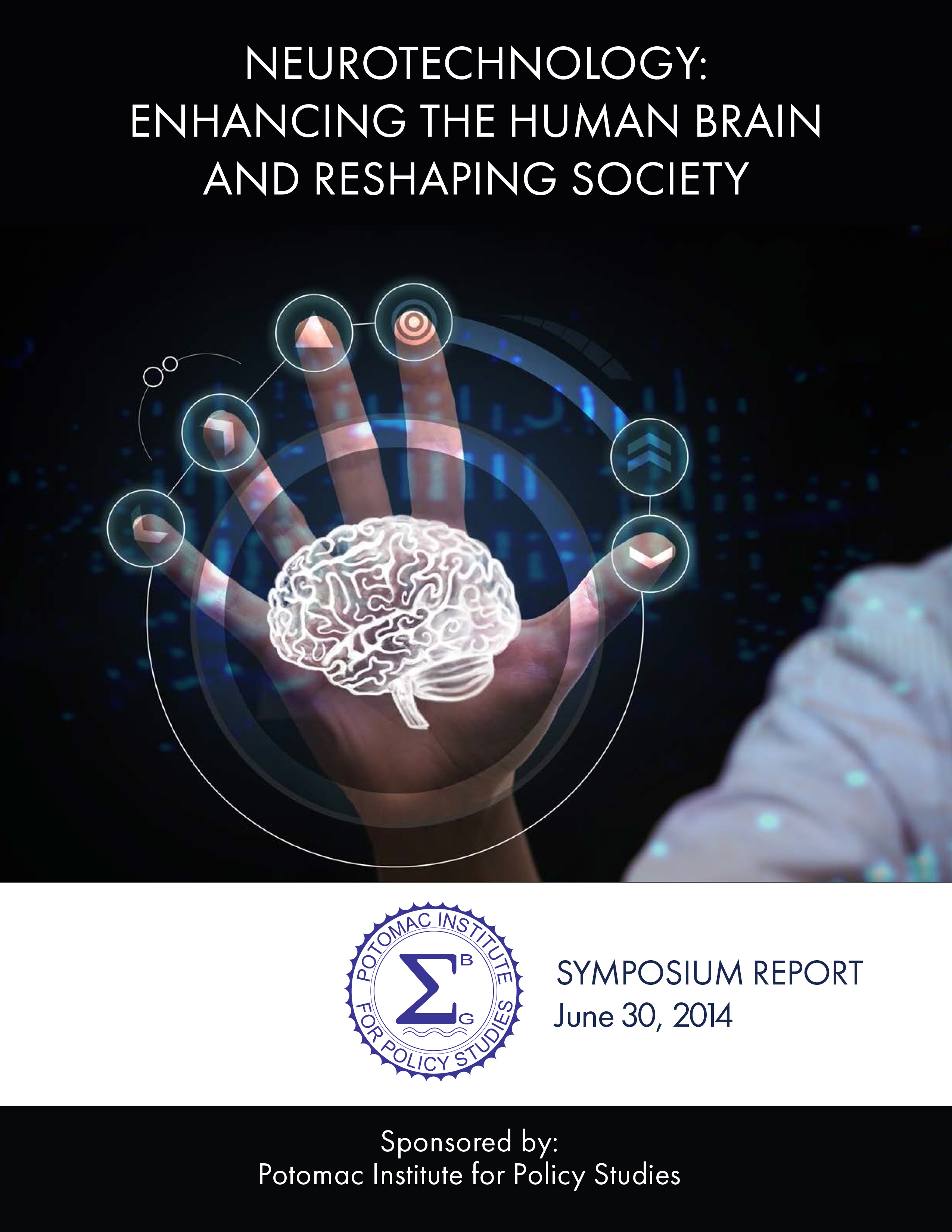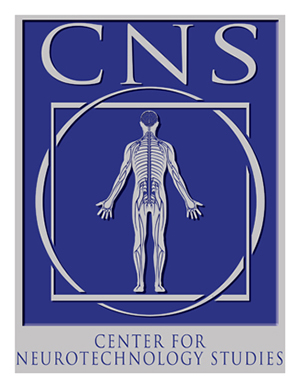Publications
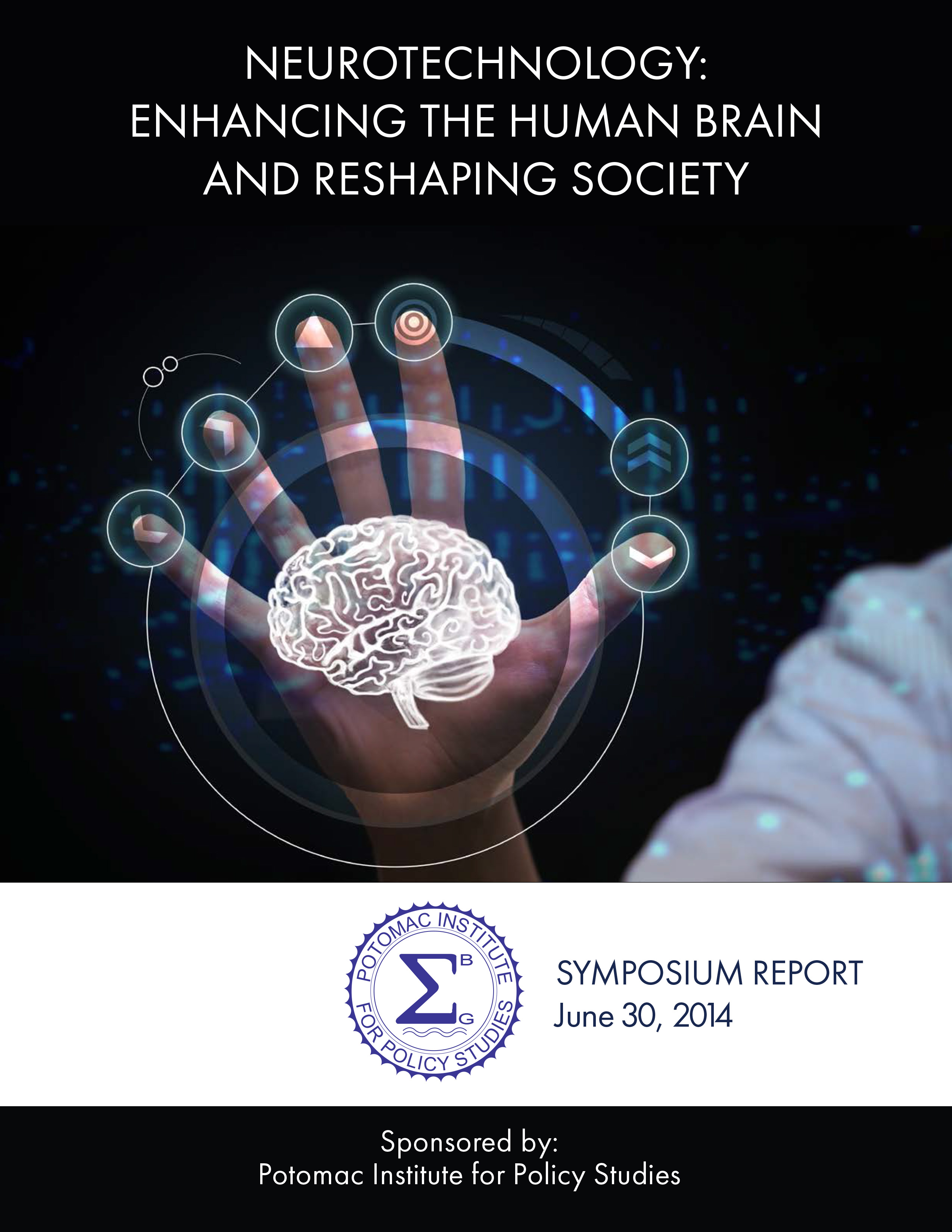 The Potomac Institute for Policy Studies held a seminar on “Neurotechnology: Enhancing the Human Brain and Reshaping Society” on June 30th, 2014. The speakers and panelists shared their insights into novel neurotechnologies that can improve our cognitive abilities through biological, chemical, and sensorimotor enhancements. Just as computing technologies brought us into the Digital Age, neuroenhancements will become widespread and transform our society. A collaborative effort between policy-makers, scientists, and the private sector will ensure that neuroenhancement of the individual will result in enrichment of our society as a whole. The human brain is the most powerful tool we know. Therefore, we should do everything we can to understand its capacity, to utilize its worth, and to enhance its value to our species and ourselves.
The Potomac Institute for Policy Studies held a seminar on “Neurotechnology: Enhancing the Human Brain and Reshaping Society” on June 30th, 2014. The speakers and panelists shared their insights into novel neurotechnologies that can improve our cognitive abilities through biological, chemical, and sensorimotor enhancements. Just as computing technologies brought us into the Digital Age, neuroenhancements will become widespread and transform our society. A collaborative effort between policy-makers, scientists, and the private sector will ensure that neuroenhancement of the individual will result in enrichment of our society as a whole. The human brain is the most powerful tool we know. Therefore, we should do everything we can to understand its capacity, to utilize its worth, and to enhance its value to our species and ourselves.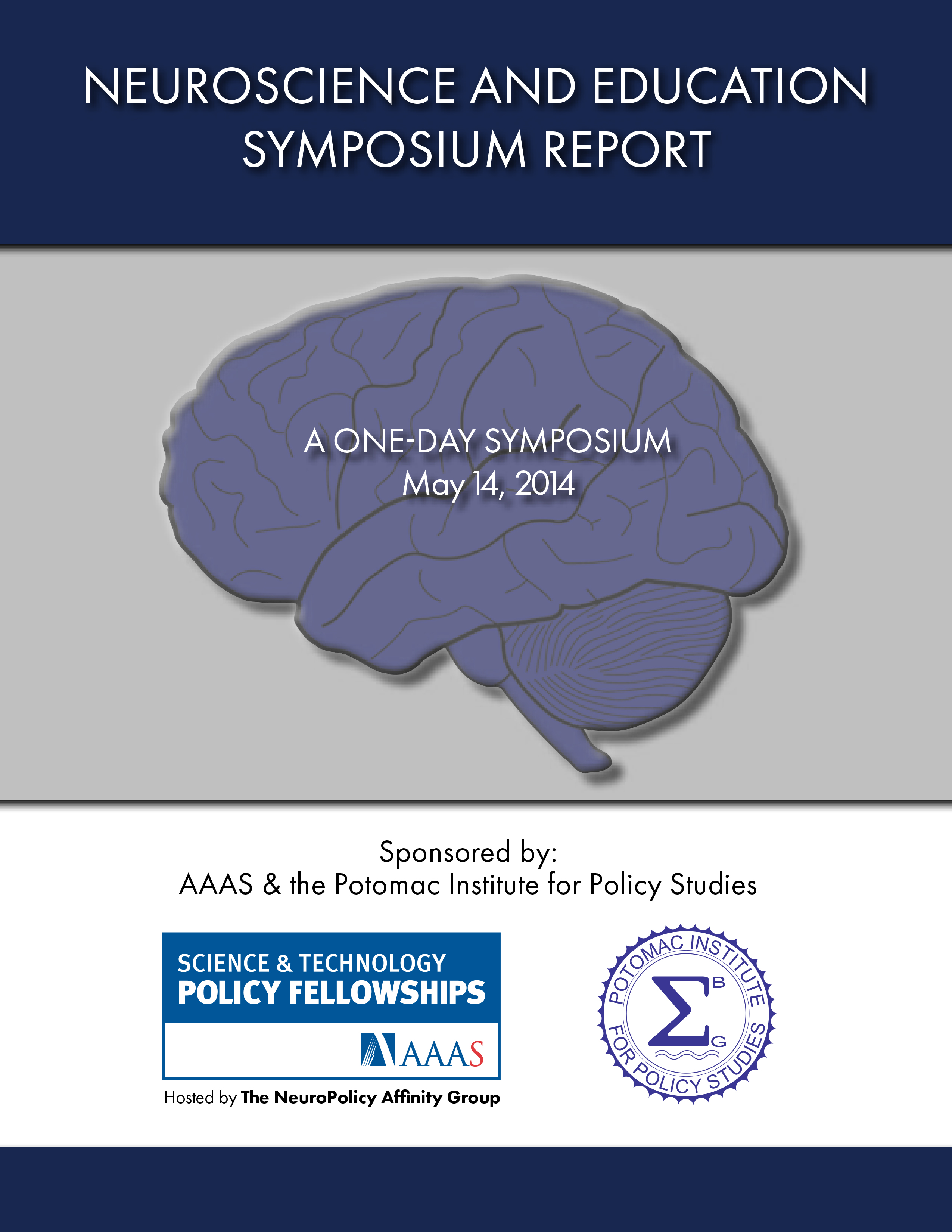 The Potomac Institute for Policy Studies and the American Association for the Advancement of Science held a symposium on the topic of education neuroscience on May 14, 2014. This symposium tackled the issues of how to apply neuroscience research to the classroom and how to reshape the future of education through neuroscience. Incorporating neuroscience and neurotechnology into our education system has the potential to revolutionize the way every student learns as an individual – a unique and personalized education, tailored to their interests and highly interactive, allowing each student to excel in their own capacity. Education of our children is our future. We do not have to accept education as a static, unchanging field. We should expect a constant improvement in our education system and now, neuroscience provides us with the best tool to effect such changes.
The Potomac Institute for Policy Studies and the American Association for the Advancement of Science held a symposium on the topic of education neuroscience on May 14, 2014. This symposium tackled the issues of how to apply neuroscience research to the classroom and how to reshape the future of education through neuroscience. Incorporating neuroscience and neurotechnology into our education system has the potential to revolutionize the way every student learns as an individual – a unique and personalized education, tailored to their interests and highly interactive, allowing each student to excel in their own capacity. Education of our children is our future. We do not have to accept education as a static, unchanging field. We should expect a constant improvement in our education system and now, neuroscience provides us with the best tool to effect such changes.
Neurotechnology, like many developing sciences, is a multi-disciplinary field that has the potential to revolutionize medicine, law, warfare, and education.
The Potomac Institute for Policy Studies and The American Association for the Advancement of Science will be hosting a series of symposia intended to provide a forum for the public and policymakers focused on the societal impacts of neuroscience and technology. One of the goals of the series is to develop future U.S. policy recommendations.
Neuroscience and technology will affect our society in more ways that we currently imagine. The speed of technology development significantly outpaces that of policy development.
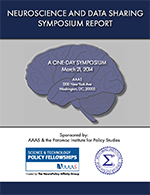 On Friday, March 21, members of the science and policy communities met to discuss the current challenges and opportunities in neuroscience data sharing as well as possible ways to advance data sharing going forward. Panelists included representatives from the neuroscience, industry, statistics, database, funding, and scientific journal communities. The biggest obstacle facing neuroscience data sharing appears to be the need for cultural change (i.e. creating an environment in which data sharing is part of the work flow for scientists instead of an afterthought and a burden). One solution that was discussed is the inclusion of data sharing practices in the evaluation of promotion and tenure decisions. Another is the development and widespread use of technologies that make data sharing an easy part of the scientific process. A second obstacle is the high cost for not only sharing data, but also maintaining and curating that data. It is currently unclear whose responsibility this should be. Before sharing can become widespread, the community must determine exactly what data should be shared. There are differing opinions on this; should investigators share all raw data, only processed data, or only data pertaining to the experimental questions of the study? Improvements in hard drives continually make it easier to store and share large quantities of data, but as more and more data is collected with new tools and techniques, this will become a bigger issue and one that must be addressed.
On Friday, March 21, members of the science and policy communities met to discuss the current challenges and opportunities in neuroscience data sharing as well as possible ways to advance data sharing going forward. Panelists included representatives from the neuroscience, industry, statistics, database, funding, and scientific journal communities. The biggest obstacle facing neuroscience data sharing appears to be the need for cultural change (i.e. creating an environment in which data sharing is part of the work flow for scientists instead of an afterthought and a burden). One solution that was discussed is the inclusion of data sharing practices in the evaluation of promotion and tenure decisions. Another is the development and widespread use of technologies that make data sharing an easy part of the scientific process. A second obstacle is the high cost for not only sharing data, but also maintaining and curating that data. It is currently unclear whose responsibility this should be. Before sharing can become widespread, the community must determine exactly what data should be shared. There are differing opinions on this; should investigators share all raw data, only processed data, or only data pertaining to the experimental questions of the study? Improvements in hard drives continually make it easier to store and share large quantities of data, but as more and more data is collected with new tools and techniques, this will become a bigger issue and one that must be addressed.
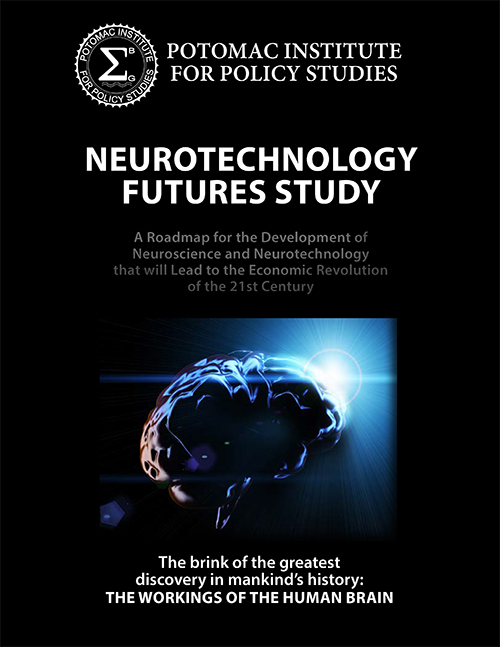 The Potomac Institute for Policy Studies undertook the Neurotechnology Futures Study to anticipate the path of future development of neurotechnology,1 and to develop a strategic plan to advance the progres- sion of this technology. The Potomac Institute also examined the potential ethical, legal and social issues that may arise as the technology develops, and considered approaches to be prepared for and mitigate these concerns.
The Potomac Institute for Policy Studies undertook the Neurotechnology Futures Study to anticipate the path of future development of neurotechnology,1 and to develop a strategic plan to advance the progres- sion of this technology. The Potomac Institute also examined the potential ethical, legal and social issues that may arise as the technology develops, and considered approaches to be prepared for and mitigate these concerns.
The study group found that neurotechnology is a rapidly advancing eld, with potential impacts that could far surpass those of the information revolution, the pending biotechnology revolution, or the anticipated nanotechnology revolution. The study concluded that targeted Federal government investment in a few key areas could play a signi cant role in developing and furthering the neurotechnology revolution.
The study group developed a technology investment Roadmap, which outlines the key research areas and technologies that will be needed to move neurotechnology forward. The Roadmap is divided into two main tracks (Figure 1). The rst is fundamental science, or scienti c discovery and understanding of the brain and cognition. The second is the development of technology and applications, which will feed back into scienti c discovery and into the development of products and applications for medicine, the military, and the public.

